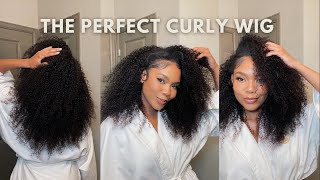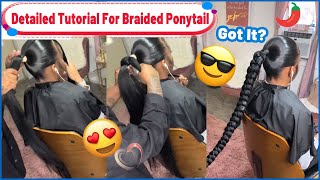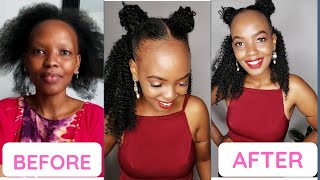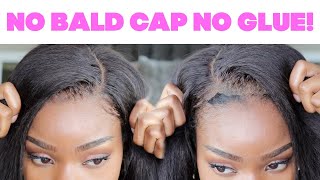4 Reasons You Are Not Retaining Length
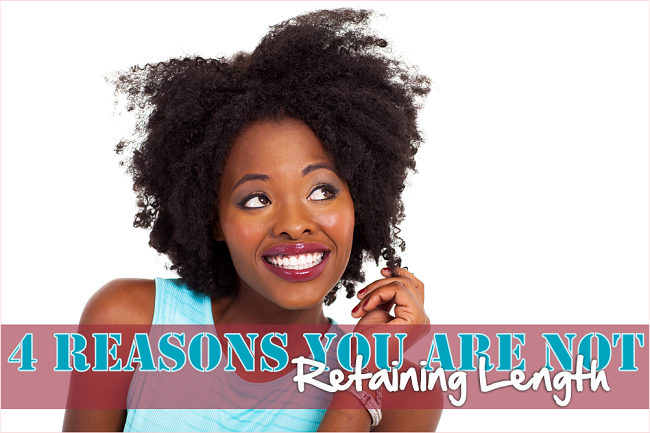
Whether we want to believe it or not, most women who are natural are length driven. I’m sure it’s the same for relaxed women but the many who switch to natural hair are doing so for longer tresses.
Yes, we want healthy hair and hair that is not thinning or breaking off but you cannot go anywhere naturals congregate (the web or in person) and not hear a conversation about retaining length.
Usually the discussion is about hair growing or not growing but that’s not accurate as all hair grows. Being able to hold on to it as it grows seems to be the real issue for many women whether natural or relaxed.
Our ends are the oldest hairs and need more TLC than the roots so there are many ways to destroy those hairs if you don’t know how to take care of or manage your hair. If you feel your hair is at a standstill (many find this when their hair hits their shoulders) then you may want to stick around and see why it’s not getting any longer.
1. Moisture Retention – Moisture is essential is keeping your hair happy, healthy, and holding on! The oldest hairs need to be moisturized but they also need to be sealed once that moisture has been added. I know many naturals don’t want to wet their hair because it ruins their style but water is the best moisturizer in the world.
Not everyone is using water daily or even weekly for that matter so as an alternative, making sure water is within the first 5 ingredients (preferably first) of the moisturizer you use is a great way to also keep your hair moisturized and supple. There are other ingredients that are amazing at maintaining moisture in your hair, like glycerin and aloe vera.
 Glycerin is great for year around use even during the winter despite what you may have heard. When added to water it saturates itself and will not draw the water away from the hair.
Glycerin is great for year around use even during the winter despite what you may have heard. When added to water it saturates itself and will not draw the water away from the hair.
Putting a few drops of glycerin in your spray bottle is a great way to keep your hair moisturized especially in the colder, dryer months.
Aloe Vera is a pH balancer for hair and a natural moisturizer whether you use the liquid or the gel as the properties stay the same. I still have a bottle in my bathroom cabinet and I think it’s about time I gave it a try.
2. Feeding Your Hair – Our hair needs nutrients to keep it healthy. A crappy diet is just as harmful to your hair as a lack of moisture and although we take painstaking steps to find the right products for our hair we have to take care of the inside as well.
There seems to be a rift in the natural hair world over supplement use and healthy hair. Some naturals feel that all the nutrients and vitamins your body and/or hair needs can come from the food you consume while others feel that supplements are just as good if not better for those vitamins.
Dr. Oz, Oprah’s favorite doctor, feels that supplements* are necessary. He deems it’s completely essential for everyone to take a multivitamin*, omega-3 fatty acids, and calcium with magnesium* and tailor other supplements according to your sex, age, and health goals.
He also feels people should avoid taking more than 5 supplements a day to avoid potential negative pill interactions and to consult your physician or pharmacist when using any drugs.
Back when food wasn’t full of hormones or wasn’t stripped of its nutrients, it was possible to obtain all the vitamins we needed in our bodies just from food. Juicing is also an excellent way of upping your vitamin intake naturally but supplements* are necessary and a great way to ensure your body and hair has all it needs to be healthy.
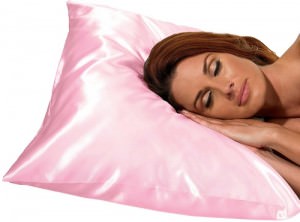 3. Protection – Protection isn’t just about ‘protective styling’ and if you are not trying various ways to do so you can suffer breakage, dryness and hair thinning. There are several ways to protect your hair when natural.
3. Protection – Protection isn’t just about ‘protective styling’ and if you are not trying various ways to do so you can suffer breakage, dryness and hair thinning. There are several ways to protect your hair when natural.
► Wearing a satin bonnet* or sleeping on a satin pillowcase* is necessary to combat breakage you can receive while sleeping. Regular cotton pillowcases or sheets can rob your hair of its moisture.
► Drying your hair with a microfiber towel* or an old t-shirt will keep your hair from frizzing up and disturbing the curl pattern. It can also be too rough to use a regular bath towel.
► Wear a satin-lined hat or a satin bonnet* under a hat to keep your hair from being robbed of its moisture by the fabric. This is really important in colder months where we are wearing more moisture whisking fabrics like wool and dealing with dryer weather in general.
► Also during the winter it’s cold so we have the heater on so our homes are hotter and dryer. Running a humidifier will allow some moisture to return to the air and be kinder to your hair and your skin!
► Sealing your hair is important and especially your ends as they are older and in need of TLC. Sealing them with an oil after your hair has been moisturized prevents split ends and keeps the moisture sealed within the hair so it can help protect it from dryness and frizz.
► Protective styling is a great way to keep your hair (your ends) from rubbing your clothing or being affected by pollutants or the elements. Not everyone feels protective styles (braids, weaves*, and wigs) are necessary and using styles that are too tight or in too long may turn out to be counterproductive and may cause damage. Keep the word protective in protective styling by not having tight styles and giving your hair time to breath in between added hair applications.
4. Damaging Techniques – There are several damaging techniques that can become a habit and although the damage may not be seen immediately it does not mean isn’t occurring.
One such damaging technique would be using chemicals. Certain chemicals should not be used (chemical relaxers or texturizers left in too long and harsh dyes). There are natural alternatives to the harsh dyes if you wish to color your hair. You can use henna* or less harsh hair coloring systems like the Shea Moisture* Color system.
Not moisturizing, not feeding your hair or not protecting it constitutes as damaging the hair and needs to be stopped or limited to short periods of time if it cannot be helped. If length retention is your goal then remember to keep your hair healthy and protected and you should have no problems.
I would love to hear what you have done to get over your length humps. Comment below!

